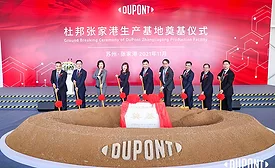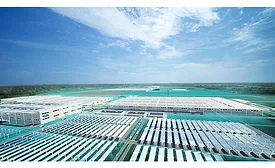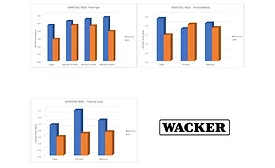Home » adhesives in automotive
Articles Tagged with ''adhesives in automotive''
The facility will produce a range of materials to advance applications for electrification and lightweighting in support of growing demand for DuPont’s automotive adhesives.
Read More
Latex Binders, Lithium-Ion Batteries, and Electric Vehicles
Although binder adhesives are a small component of the lithium-ion batteries that power electric vehicles, they play a critical role in ensuring performance and efficiency while providing improved battery kinetics.
November 10, 2021
Market Trends
Strong Growth Projected for Structural Adhesives
The global structural adhesives market is projected to reach $27.9 billion and exhibit a considerable CAGR from 2021-2030.
October 26, 2021
AVERY DENNISON PERFORMANCE TAPES: Tapes for Acoustically Insulated Tires
The pressure-sensitive tapes help bond noise-absorbing foam and other materials to the inside surface of vehicle tires.
October 14, 2021
Top 5 News that Sticks
Massive Interest in Kraton Acquisition Continues
Kraton’s planned acquisition by DL Chemical continued to hold readers’ interest last week.
October 11, 2021
Ford to Build New Electric Vehicle Mega-Campus in Tennessee, Battery Plants in Kentucky
The facilities will produce the next generation of electric F-Series trucks and the batteries to power future electric Ford and Lincoln vehicles.
September 30, 2021
Sponsored Content
Address bonding needs and process flexibility with WACKER’s SEMICOSIL® 9820
September 30, 2021
Case Study
Structural Adhesives are Reaching New Heights with an Innovative Electric Vehicle
Sika serves as the adhesive bonding technology partner for a world record attempt featuring a 100% solar-powered vehicle.
September 28, 2021
Top 5 News that Sticks
RPM Expansion Jumps to Top Spot
Readers last week were most interested in RPM’s acquisition of a Texas manufacturing plant.
September 27, 2021
Henkel to Present Advanced Bonding Techniques at Vehicle Displays & Interfaces Symposium
Henkel will introduce a new structural bonding method that accurately and efficiently cures adhesives in display applications.
September 15, 2021
Keep the info flowing with our newsletters!
Get the latest industry updates tailored your way.
JOIN TODAY!Copyright ©2026. All Rights Reserved BNP Media.
Design, CMS, Hosting & Web Development :: ePublishing


.webp?height=168&t=1634732409&width=275)




